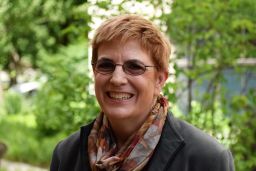Editor’s Note: Rachel S. Mikva serves as the Herman Schaalman Chair in Jewish Studies and Senior Faculty Fellow of the InterReligious Institute at Chicago Theological Seminary. She is author of “Broken Tablets” (2000), “Midrash vaYosha” (2012) and “Dangerous Religious Ideas” (forthcoming). The views expressed in this commentary are her own. View more opinion articles on CNN.
Attorney General Jeff Sessions recently announced the creation of a Religious Liberty Task Force, reportedly to shield religious groups from discrimination. If that were really its purpose – and it was deployed to protect Muslims who desire to travel to the United States, for example – I’d be all for it. But members of the Trump administration have long sought to expand the role of religion in public life, and their interpretation of religious freedom actually compromises religious liberty.
Their record is clear, but here are few examples:

In January, the Department of Health and Human Services created a new civil rights division to protect medical personnel who, based on their religious beliefs, refuse to treat patients – regardless of the patient’s needs or access to alternative providers. So religious freedom means the freedom to discriminate.
In February, Education Secretary Betsy DeVos proposed spending over $1 billion on private school vouchers and other school choice plans. Based on existing voucher programs, a lot of that money would have ended up subsidizing religious schools if Congress had approved the funds.
The Department of Education also announced its desire to change rules that prohibit federal education funding for faith-based entities, and has re-opened the public comment period to begin the process. Some of those funds may well end up subsidizing religious schools that teach creationism and declare climate science a hoax. So religious freedom means the freedom to undermine science at taxpayer expense.
Top officials – such as Vice President Mike Pence – have repeatedly committed to overturning Roe v. Wade, despite the fact that 63% of Americans support it, and now they have a Supreme Court nominee who might help do just that. So religious freedom means forcing one interpretation of religion on everyone.
President Donald Trump has (so far unsuccessfully) tried to get rid of the Johnson Amendment to let religious leaders explicitly endorse candidates from the pulpit. So religious freedom means compromising the separation of church and state, allowing people to use religion for partisan advantage and politics to build religious power.
How do these assaults on reason and good governance masquerade as religious freedom? It’s partly the fault of liberals like me. I was raised in the tradition of John Rawls, believing that we should utilize “public reason” rather than religious beliefs in framing policy positions. The rules that regulate our common life, according to this philosophy, should be based on arguments to which we all have equal access, translating our beliefs into secular principles.
This makes more space for religious minorities by removing Christian privilege from the public square. But since progressives have been more committed to this work, it has also created the erroneous impression that political liberalism is hostile to religion, that religious voices are pushed out of public debate and that “religious” increasingly meant “conservative.”
In short, progressives largely forfeited the public religious voice to illiberal perspectives – to people who make religious ideas dangerous. So even though I’d really rather Ralph Drollinger, co-founder of Capitol Ministries devoted to evangelizing government officials, not lead a Bible study group with US Cabinet members – since he claims that America is required by God to “moralize a fallen world through the use of force,” that women cannot lead in marriage or the church and that homosexuality is illegitimate in God’s eyes – instead of simply opposing this, let’s fight instead for equal time.
Rev. Dr. William Barber and Rev. Dr. Liz Theoharis, co-chairs of the revived Poor People’s Campaign, could lead an amazing Bible study for the Cabinet, I’m sure.
Progressives need to take back the public square and redefine the religious voice. We need to tap into the deep spiritual foundations of our nation. We cannot smile politely in the spirit of tolerance as people deploy their faiths in ways we consider harmful. The power of religion is too great merely to hope it’s channeled to do good.
Ultimately, I advocate a “conversation” model – more than one of strict separation – in which people are encouraged to share their religious perspectives on public policy, but without expectation that these operate as a trump card. They may claim to speak from a tradition, but not to speak exclusively for it. The teachings that shape their values as people of faith may function in public space as ideas, not religious truths. They may provide inspiration, not authority, so they can be challenged: presenting a religious reason for one’s position must never stifle debate.
Sessions’ speech announcing the task force lamented that some appointees to high office were asked about their beliefs; I say it’s fair game. (At his own confirmation hearing, Sessions was asked if he thought secular attorneys could assess the truth as well as religious ones, and he admitted he was not sure.)
He also portrayed religious liberty as the right of religious groups not to be labeled as hate groups even if their beliefs prescribed hate, and the right to deny health care coverage for contraception for all their employees. Advancing the ludicrous mythology of a war on Christmas, Sessions celebrated Trump’s appeal to (Christian) people of faith: “He declared we would say ‘Merry Christmas’ again.”
To me, religious freedom looks different. I’m going to fight for religious freedom that includes freedom for Muslims to travel to the United States, freedom for people of all faiths to secure refugee status due to persecution, freedom to protect one’s sacred lands from oil pipelines, and freedom to believe life does not begin at conception.
To secure these freedoms, progressives need to get better at talking about religion in the public square.


